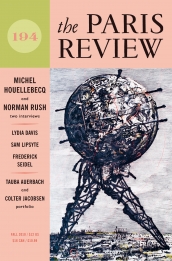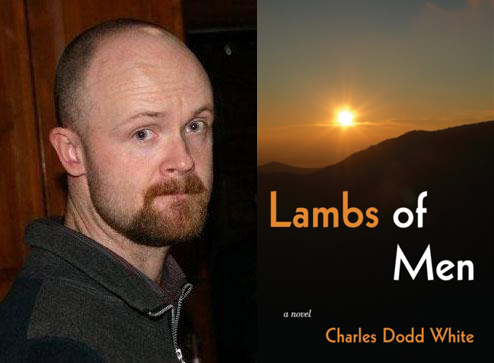Please enjoy a copy of Andy Devine’s Apartment City. If you would like to have the full PDF of NY Tyrant 8 so you can participate in this month’s LMC discussions, get in touch. But still, when you buy a literary magazine, an angel gets its wings so consider buying a copy.
Catalogued along so many strong-voiced stories and stylistic usages, Andy Devine’s “Apartment City,” can seem out of place. More of an invoice than a story, it’s simply an index of all of a decomposed novel’s words and the number of times in which they appear. Here’s a chapter:
Q
Question (4x), questions (20x), quiet (37x).
Q’s simple. The entry for L is a hell of a lot longer, and the thought of reading through the whole thing, repeats and all, from “1 (4x)” all the way to “.(5728x)” is ridiculous. Who would? Maybe on a dare, or if you had something to prove. Maybe. But it’s an interesting experiment, and it says something about the nature of writing. It calls out something that’s essentially obvious, though often overlooked: writing is made up of words. Arrangement also matters.
Beyond, or behind, the Oulipian humor, speaks a necessary mythology. Rumor has it that, before there was any list, there was a real novel―in the sense that we normally think of novel. Rather than print it as it was, the strutctures of English were replaced with those of data retrieval. What would have that book been like, this mythology asks. Of course, with just the raw ingredients, and nothing of the composition, there’s no way to recreate the lost book. Instead there is the essence of uncountable, also unwritten, books. What we get is pre-digested, pro-biotic literature. Analysis has already been performed, but according to the rules of a separate discipline. It’s like Quinault’s 100000 sonnets. It recalls the character in If On A Winter’s Night A Traveler, who develops a machine to interpret fiction based on a novel’s distribution of words. “Apartment City” is the code on which such an apparatus would definitely operate.
The novelty feeling, while sometimes primary, is undercut by the excerpt’s invitation to a different sort of reading. You could read this piece like a minimalist chorale, twenty eight voices simlutaneously dictating. The pluralization of “come (25x)” to “comes (2x)” could provide a shocking release, some sort of drone masterpiece. You could read word after word, you could admire the way “downtown” foreshadows “dress (15x), …, drink (33x), drinking (12x), …, driving (4x), …, drove away (7x), …, dusk(2x).” You could giggle at the way “policemen (14x), polish, ponytail, pool (5x), popped, pose, posed, position, positions (2x), possible, pot (8x)” insinuates any number of high school fantasies.
More likely, the most pleasure you can take from this sort of exercise is in the fact that it even exists. It’s a mind toy, like the best fiction and poetry, a concept with only the thinnest material clothing, alien and humdrum. It reminds you narrative is only one way to stimulate memory, but it gives no other advice.




